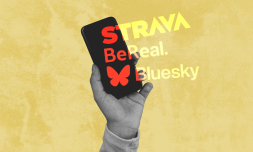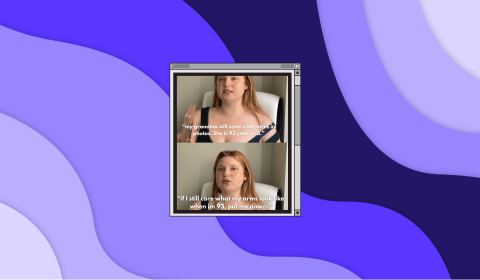Welcome to the latest edition of The Gen Zer. This week’s newsletter is an exploration of how the events sector is being transformed by a new generation with new and novel demands. From niche interests to activity-based meet ups, affordable alternatives and silent events… the scene may never be the same (and that’s a good thing!).

Over the last five years, event organisers went from being forced to move their operations online during the pandemic to radically shifting the way they market and plan in-person experiences.
Nobody knows this better than events platforms and the organisers that use them, unless you’re talking to Gen Z – those born between 1997 and 2012. This generation has gained a reputation for demanding more from brands and challenging the status quo.
Research shows Gen Z is drinking less and prioritising their health and wellbeing, while spending more time online than any other age group. You might already know this, as we’ve covered it right here on our Substack and in our digital magazine, Thred.
As a result, some may call Gen Z overly cautious and maybe even (gasp!) boring. The truth is, young people of today still crave unforgettable in-person experiences. More than anything, they want to build meaningful connections and valuable communities. Research shows Gen Z is actually willing to splurge more on experiences than material possessions.
The catch is, Gen Z want their days and nights out to look different than they have for previous generations, because the landscape they’ve grown up in – and barriers they face – are different.
So how are events companies interpreting these changes in their consumer base? And how, more importantly, are they responding to these new demands in a world where costs are higher than ever?
The cost-of-living
Those who missed out on in-person experiences like concerts and festivals have attended more of them in recent years to make up for lost time. Simultaneously, labels and artists are needing to make up for revenue lost from cancelled shows during lockdowns. That explains why every artist you know of has been on tour in the last year.
Experts predict that the high cost of tickets – often driven my secondary sales AKA ticket touting – and surging demand for major events willy likely fizzle out to normal levels by the end of the decade. Third places, on the other hand, will likely see a revamp and revival.
Though most of us have tried to mentally block out the pandemic experience, this one-in-a-century event has had a profound effect on our social habits. The COVID era marked a time where going out wasn’t considered safe. Now, when you do go out, everyone’s on their phone.The exciting thing about this is it makes way for the creation of fourth spaces. Whatever is being enjoyed online – online communities and individual connections – can be brought into a common space.
Young people are already finding their own way to do this while avoiding astronomical costs. Events shaped around in niche interests are soaring, while smaller, less expensive gigs featuring up and coming artists discovered on platforms like Spotify and YouTube are resulting in the birth of new fanbases.
Events companies are also starting to capitalise on these kinds of communities by driving people towards events at non-traditional venues such as pop-ups and ‘living room’ style spaces that allow fans to get up close and personal with an artist. These small-scale events turn a URL connection to one that lives IRL. They also deliver on the unique, personal, and meaningful element to events that Gen Z desire.
Loneliness awareness and mental health
But a one-size-fits-all approach doesn’t work for Gen Z. Some will want to bring their online communities offline, while others hope to escape the digital world altogether for a few hours every week – though, admittedly, it isn’t always easy to do so.
To lure Gen Z in, organisers have had to make their events worthwhile. Today, young people seek out multi-sensory, interactive experiences that spark conversation, curiosity, and engagement. Events are having to transform into multi-dimensional, immersive experiences that are worthy of bragging about, or at the very least, a post on social media.
As a result, affordable supper clubs and exclusive cooking classes are growing by 35 percent. Wellness gatherings and running clubs up 130 percent, while sober-curious gatherings that feature no-to-low alcohol or gut-healthy and adaptogenic drinks are up 92 percent in the last year alone.
Gen Z’s interest in run clubs has seen events of this nature grow by 35 percent, while hands-on get-togethers like knitting and crochet clubs, jewellery and pottery-making workshops have risen by 34 percent. These events allow young people build endurance, gain knowledge, or develop a skill while forgetting about their phones for an hour or two.
It’s no coincidence that these activities are antidotes for internet fatigue, the loneliness epidemic, and for the anxiety young people have about the state of the world due to climate change and worsening political conflict.





















